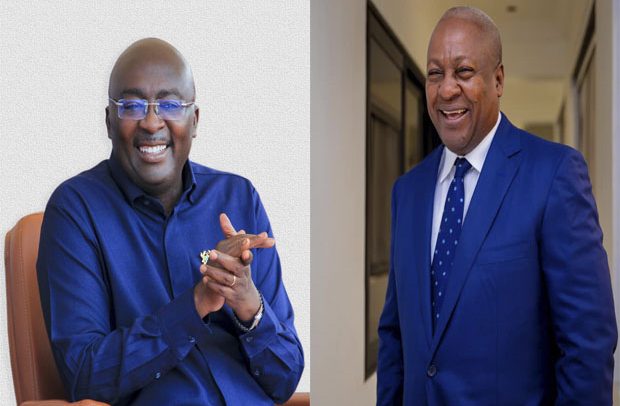Dr. Mahamudu Bawumia, Ex-President John Mahama
The choice between the two should not be too difficult for Ghanaians to decide, and must be devoid of sentiments. One has been tested for four years and five months, which included the devastating four years of ‘dumsor’ that seriously damaged the economy, and consequently voted out of office in 2016 elections for incompetence.
The Vice President is yet to be tested as a President but has excelled in many ways as an intellectual and economist. The Ghanaian economy is in crisis, and so are many countries in the world today. Dr. Bawumia’s intelligence and knowledge in economics can help alleviate the Ghanaian situation.
The current economic situation demands long term strategic planning. The ex-President John Mahama has observed that, “Ghana’s four years term of every government is insufficient for the needed investment in development the country. He indicated that unlike other countries where governments have ample time to roll out their ideas and ensure seamless development, the same cannot be said about Ghana.”
Ex-President Mahama’s observation reveals that his motive to contest the election is not noble because he can only serve not more than four years. He cannot therefore undertake any meaningful long-term planning to save Ghana’s economy, and may resort to ad hoc measures to suit his purposes.
It is very clear that ex-President Mahama is seeking power not to better the lives of Ghanaians but to ‘create, loot and share’ with his cronies. Voting for ex-President Mahama is therefore considered a dangerous gamble which Ghanaians must avoid.
To reduce corruption, there is the need to reduce human involvement in administrative processes hence, digitalisation. We need to digitalise the economy, and institute measures to change the character of the Ghanaian. The introduction of the National Identification Card is the anchor of the digitalisation programme of the economy, and its benefits are already being experienced by many citizens of the country. The agenda must be pursued to its logical conclusion.
The success of every economy depends on the quality of its leadership and the commitment of the people. We cannot build a strong economy when majority of the people refuse to pay taxes and fully indulge in corruption and other malpractices. It should be clear to every Ghanaian that the informal sector simply means indiscipline and the rot in our society which need to be cleaned to build a strong economy. I support the position of turning the economy from an informal sector to formal before talking about a 24-hr economy.
Yes, it is possible.
Brig-Gen (Rtd) J. Odei

